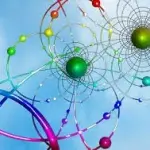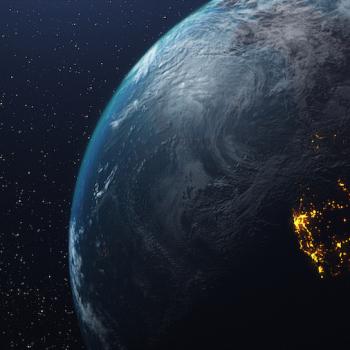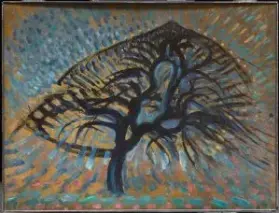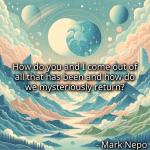 Many adherents of supernatural forms of religion assert that human beings have an inherent, metaphysical dignity because they are created in the “image and likeness of God” as stated in Genesis.
Many adherents of supernatural forms of religion assert that human beings have an inherent, metaphysical dignity because they are created in the “image and likeness of God” as stated in Genesis.
This same line of religious reasoning continues, that if it weren’t for that of God within all humans, if it weren’t for the divine spark in each of us, if it weren’t for our likeness to God – humans would simply be just one more animal among other animals. Therefore, the assertion of human dignity is a religious assertion that is valid only because our dignity is granted by, and grounded in, God.
That reasoning is flawed as I will now argue. Humans possess an inherent dignity and value whether God exists or not and this dignity is not lessened because we are one animal species among others.
The Meaning of Dignity
Human dignity is an ontological status and not in itself a moral status. Philosophical and practical reflection on human nature reveals us as animals of a high degree of self awareness, rational intelligence, affectivity, the ability for reasoned self-determination and governance, the ability to love, and the self-reflexive capacity for comprehending meaning and purpose.
The human capacity for complex language, metaphor, symbolism, and reasoning allows humans to engender symbolic culture – the sphere of interwoven meanings and values.
Despite the primarily ontological nature of the claim of human dignity, the human capacity for moral awareness, reasoning, and action bespeaks the intrinsic value of humans.
Our capacity for gratitude, awe, humility, generosity, love, mercy, kindness, and reasoned justice are functions of a metaphysically significant being. Yet to assert the inherent dignity of humans is to not overlook our potential for evil and destruction. Yet even the innate capacity for such harm – as well as much good, love, and generosity – all attest and point to the dignity we speak of.
Human dignity is the recognition that human beings possess a special value intrinsic to their humanity and as such are worthy of respect simply because they are human beings. Claims of dignity as asserted as universal, unconditional, inalienable and overriding of other concerns.
Human dignity is an assertion of something recognized or intuited about human beings. As such, it cannot be proven in the strict sense of the term. Human dignity cannot be demonstrate through deductive argument. Even the most careful and accurate social science analysis won’t yield the concept’s validity either. The argument for human dignity rests in the application of illative reason and the corresponding forms of argument and persuasion to get others to see the merit of our own particular view of the matter – in this case, the dignity of all humans.
Much of the Western Cultural tradition is grounded in the affirmation of human dignity, from democracy, social justice, human rights, aid to the needy, compassion, and freedom, to themes in art, religion, literature, style, cuisine, and architecture.
To reflect on human dignity is a gateway to moral understanding and the assertion of human rights and responsibilities that form our social order. Our dignity makes certain demands on us in terms of how we live, eat, dress, work, have sex, entertain ourselves – and how we relate to others, both humans and nonhumans, in the world around us.
To reflect on human dignity is in itself, a testament to that dignity. The complexity of human consciousness allows for such self-awareness and self-reflexiveness. We are the only creatures capable of existential questioning, of asking questions of meaning, and of yearnings for the realizations of ideals and transcendent realities.
Human Personhood and Dignity
Human beings emerge from nature as persons – free, emotive-rational, conscious subjects. Reflecting on our status as persons also grants insight into our ontological dignity, inherent value, and a sense of worth that is grounded in our very being and is not merited or earned.
What does it mean to assert that every human being is a person? The concept of person implies a relative independence of being and acting, echoing back to classical Roman law – persona est suri iuris et alteri incommunicabilis – a person is a being which belongs to itself – is self-aware, and to some degree, self-directing.
Personhood implies subjectivity – we are not inert, passive objects in the world – we are centers of awareness (including self-awareness), action, and unrepeatable individuality.
Each human person carries with them a rich, vast inner world of memories, meanings, experience, affections and particular attachments, accomplishments, and relationships. When any person dies, it is as if an entire universe dies with them.
Human Dignity & SpeciesismSet featured image
To assert the inherent dignity of the human person is not speciesism or a denigration of other life forms. Every living being is unique and of value. Each species has its own dignity. Yet human self-awareness, reason, language, the engendering of culture, freedom, capacity for virtue (and vice) calls attention to the unique place of the human person within the ecosystem.
Affirming the unique ontological status of human beings, noting those capacities and powers that differentiate ourselves from other animals, need not lead to the devaluing of other life forms.
Humans are the only animals that can assert responsibility for safeguarding the earth and consciously maintaining biodiversity, ecological protections, and other conservation efforts.
Granted, the vast, vast amount of ecological damage is human caused. We’re the species that has chain cut forests, overfished the seas, sent billions of tons of carbon waste into the atmosphere, poisoned the soil, the air, and the water.
However, we are also the only species capable of repairing some of the damage and altering our behavior for the better. And this fact, as well, speaks to the our profound dignity and place within the natural world.
Subscribe to The Spiritual Naturalist Society
Learn about Membership in the Spiritual Naturalist Society















